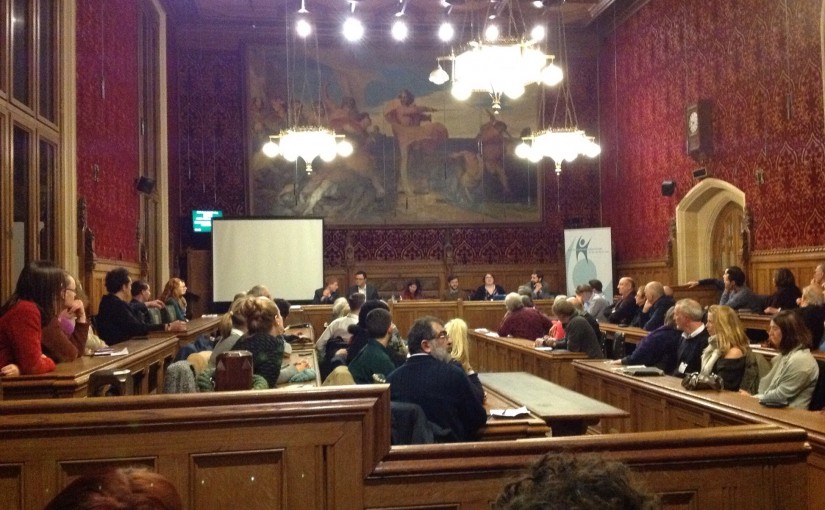Last night, I attended a discussion hosted by the pan London Humanist group on what new opportunities there are for greater democratic engagement following the Scottish referendum on independence. It featured Ian Scott and Gary McLelland from the Humanist Society of Scotland (Ian is Acting Chief Executive and voted yes in the referendum, Gary is the Policy & Public Affairs Officer and campaigned for no), Andrew Copson (Chief Executive of the British Humanist Association), Will Brett (Head of Campaiggns at the Electoral Reform Society) and Alex Runswick (Chief Executive of Unloock Democracy). Anoosh Chakelin (Deputy Editor of New Statesman) stepped in as the chair for the evening.
It was an interesting discussion despite being, as Alex said, “in danger of everyone agreeing with one another.” That agreement included:
- Electoral reform
- Lowering the voting age to 16
- A citizen-led constitutional convention for the UK
While some non-humanists see tradition as a way to keep society structured, the humanists on the panel agreed that we should critically evaluate our political structures and apply a more rational design, based on evidence and tested against other countries. Humanism is about rejecting dogmas and putting the state in service of the individual. We should ask what we can do to enhance one another’s lives.
They also worried about some of the bitter nationalism seen during the referendum debate. Andrew Copson reminding us that Bertrand Russell frequently spoke out against nationalism, saying that it offered simple silver bullet solutions to all of life’s problems (like Scottish Independence or leaving the EU). Nevertheless, the speakers were optimistic about the engagement generated by the referendum.
The most disagreement in the night came from the questions posed by some members of the audience. One worried that we are just “rearranging the deck chairs on the Titanic” by not dealing with the problem of big business’ influence on politics. Another said we should have compulsory voting – to which Gary said he was against anything compulsory as a humanist and Alex pointed out that compulsory voting in Australia had failed to drive up turnout rates at the local level (where it isn’t compulsory). Another questioner asked how you keep small parties out of government in in proportional representation, and he pointed to Israel where (in his words) the Jewish far right has wielded so much influence their airlines can’t even fly 7 days a week – the answer is given by countries across Europe which have threshold levels before a party gains any seats.
The bet comment of the evening though has to go to Andrew Copson, who said the venue, the Palace of Westminster, “was the least democratic building in the Western world, architecturally.” A point I tried to illustrate recently.
